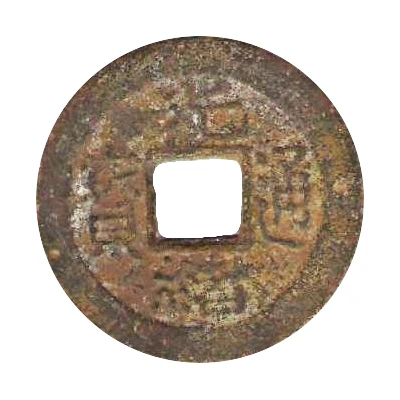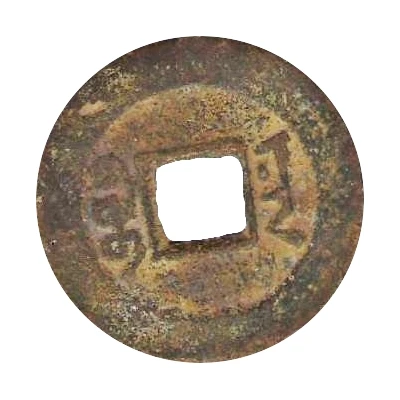1 Cash - Guangxu Tongbao; Boo-su; large type; struck ND
| Brass | - | 27 mm |
| Issuer | Empire of China |
|---|---|
| Emperor | Qing dynasty › Guangxu (光緒帝) (1875-1908) |
| Type | Standard circulation coin |
| Years | 1896-1897 |
| Value | 1 Cash |
| Currency | Cash (621-1912) |
| Composition | Brass |
| Diameter | 27 mm |
| Shape | Round with a square hole |
| Technique | Milled |
| Orientation | Medal alignment ↑↑ |
| Demonetized | Yes |
| Updated | 2024-10-03 |
| Numista | N#227475 |
|---|---|
| Rarity index | 100% |
Reverse
Two Manchu words (read vertically) separated by the hole.
Script: Mongolian / Manchu
Lettering: ᠪᠣᠣ ᠰᡠ
Translation: Boo-su
Edge
Plain
Interesting fact
One interesting fact about the Standard circulation coin 1 Cash - Guangxu (Tongbao; Boo-su; large type; struck) ND (1896-1897) from Empire of China made of Brass is that it was designed by a French sculptor named Jean-Baptiste Farochon. Farochon was commissioned by the Chinese government to create a new design for the coin, which was intended to be used as a standardized currency across the country. The coin features an image of a dragon on one side and the Chinese characters for "Tongbao" on the other. The use of brass as the material for the coin was a departure from the traditional use of copper or silver, and it was intended to make the coin more durable and resistant to wear and tear. Despite its intended use as a standardized currency, the coin was not widely accepted and was eventually replaced by other designs. Today, the coin is considered a rare and valuable collector's item.

